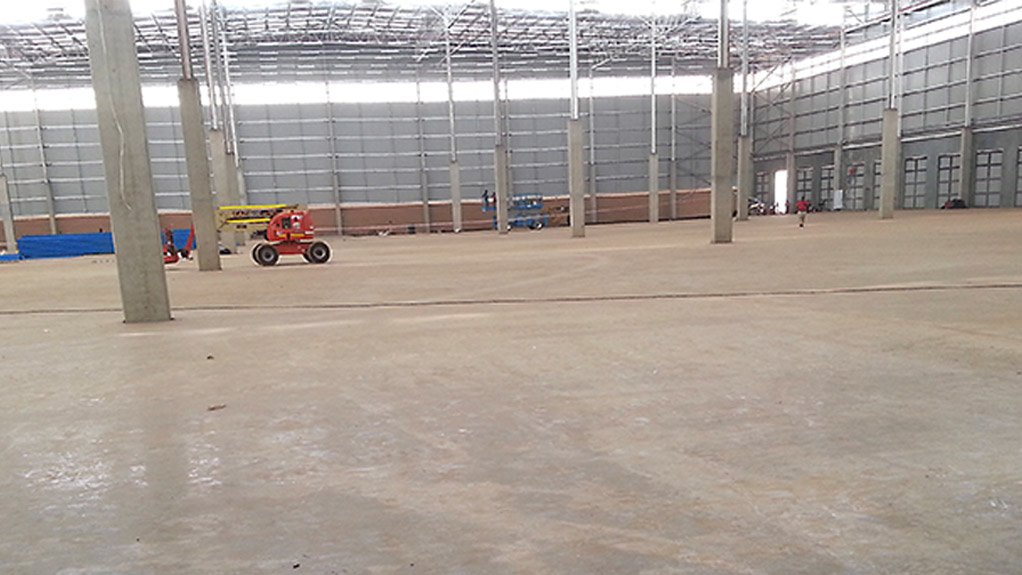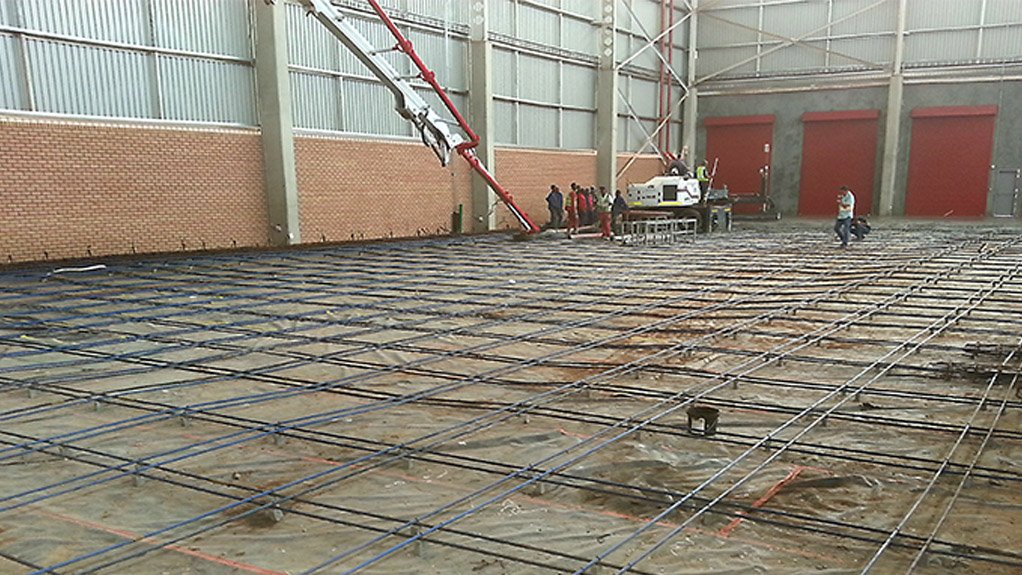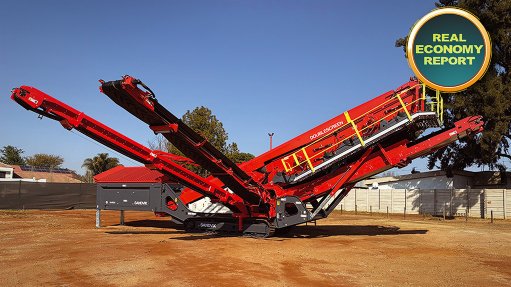Concrete industrial floors look easy – but need special skills




John Roxburgh, senior lecturer at The Concrete Institute’s School of Concrete Technology
This article has been supplied.
Industrial concrete floors are essential for South Africa’s industrial growth but also poses more problems for the construction industry than most other concrete projects, says John Roxburgh, senior lecturer at The Concrete Institute’s School of Concrete Technology.
Roxburgh says although the South African manufacturing industry has been in a slow decline over many years – a situation likely to be exacerbated by the virus pandemic – the wholesale and retail industry has shown steady increase in recent years. “This has resulted in an ever-increasing need for strategically placed warehouses and storage facilities which you can see being built by driving along highways in all our major cities. South Africa is importing more and more manufactured goods and needs a place to store these goods for distribution. An essential part of a durable and reliable warehouse, storage facility or a factory is the concrete industrial floor on the ground.”
Roxburgh says without a well-designed, fit-for-purpose and low maintenance concrete industrial floor, factories, warehouses, storage and retail areas or other hard standing areas cannot operate at optimum efficiency. He believes the importance of a sound concrete industrial floor is often overlooked but should be the main priority for minimising long-term operational costs.
“Industrial floors on the ground typically appear simple in their design and construction but in reality they can become nightmares for the unskilled. The Concrete Institute can testify to that because when it comes to the various concrete elements in a building, the industrial floor is by far the most problematic in meeting specifications and performance requirements, and attracts the highest volumes of calls for advice and help to TCI.”
Although a concrete floor is constructed on the ground - with minimal reinforcement - it is required to possess stringent and diverse qualities, including:
- The correct thickness.
- Level, flat and at the right height construction.
- Hard-wearing dust free surface.
- Capacity to carry large imposed loads over its entire surface - including across its joints and at its corners and sides.
- To be aesthetically pleasing with minimal surface defects and cracking.
“The concrete used for the industrial floors needs certain plastic and hardened properties to perform and so the mix design for these concretes are more constrained and require greater attention to detail. Concrete floors are also often constructed under adverse conditions. The large surface to volume ratio of a floor makes its construction very vulnerable to hot, windy and dry conditions.
“The most common problems in industrial floors are cracking, joint failure, curling, dusting, scaling, surface wear, sealant failure and excessive lateral movement of forklifts and pallet jacks.
An underperforming floor will result in slowing down of forklifts, pallet jacks and reach trucks. This causes maintenance costs on all packing, stacking and lifting machinery to soar along with more frequent and costly repairs of the floor resulting in more downtime and the need for spare machinery - all resulting in a less efficient operation,” Roxburgh contends.
“To produce a good industrial floor requires a three-pronged approach. The floor needs to be designed and specified correctly - this will include performance requirements, joint layout and specification, level and flatness tolerances amongst others. Then, secondly, the floor needs to be constructed by an experienced concrete flooring contractor who can place, compact and protect the floor as well as produce the correct surface finish with the correct tolerances and cut the joints timeously to specification. Finally, the floor needs to be maintained correctly. This would include implementing minor repairs on an on-going basis, keeping the floor free of any material that can cause damage to it, as well as joint maintenance and sealant repair and top-up when needed.
“The good news is that good floors can be constructed. To help educate those involved with concrete floors, The Concrete Institute offers a one day course, ‘Industrial floors on the ground’ lectured by MD Bryan Perrie, an internationally recognised expert on concrete floors, in which all the design principles and concrete practice needed to produce a good floor are covered. The course also includes floor repair and maintenance. All engineers, contractors, concrete specialists, floor coating applicators, managers of warehouses and clients involved with industrial floor will benefit greatly by attending the course which is planned for Midrand, Cape Town and Durban later this year,” Roxburgh adds.
Comments
Press Office
Announcements
What's On
Subscribe to improve your user experience...
Option 1 (equivalent of R125 a month):
Receive a weekly copy of Creamer Media's Engineering News & Mining Weekly magazine
(print copy for those in South Africa and e-magazine for those outside of South Africa)
Receive daily email newsletters
Access to full search results
Access archive of magazine back copies
Access to Projects in Progress
Access to ONE Research Report of your choice in PDF format
Option 2 (equivalent of R375 a month):
All benefits from Option 1
PLUS
Access to Creamer Media's Research Channel Africa for ALL Research Reports, in PDF format, on various industrial and mining sectors
including Electricity; Water; Energy Transition; Hydrogen; Roads, Rail and Ports; Coal; Gold; Platinum; Battery Metals; etc.
Already a subscriber?
Forgotten your password?
Receive weekly copy of Creamer Media's Engineering News & Mining Weekly magazine (print copy for those in South Africa and e-magazine for those outside of South Africa)
➕
Recieve daily email newsletters
➕
Access to full search results
➕
Access archive of magazine back copies
➕
Access to Projects in Progress
➕
Access to ONE Research Report of your choice in PDF format
RESEARCH CHANNEL AFRICA
R4500 (equivalent of R375 a month)
SUBSCRIBEAll benefits from Option 1
➕
Access to Creamer Media's Research Channel Africa for ALL Research Reports on various industrial and mining sectors, in PDF format, including on:
Electricity
➕
Water
➕
Energy Transition
➕
Hydrogen
➕
Roads, Rail and Ports
➕
Coal
➕
Gold
➕
Platinum
➕
Battery Metals
➕
etc.
Receive all benefits from Option 1 or Option 2 delivered to numerous people at your company
➕
Multiple User names and Passwords for simultaneous log-ins
➕
Intranet integration access to all in your organisation




















